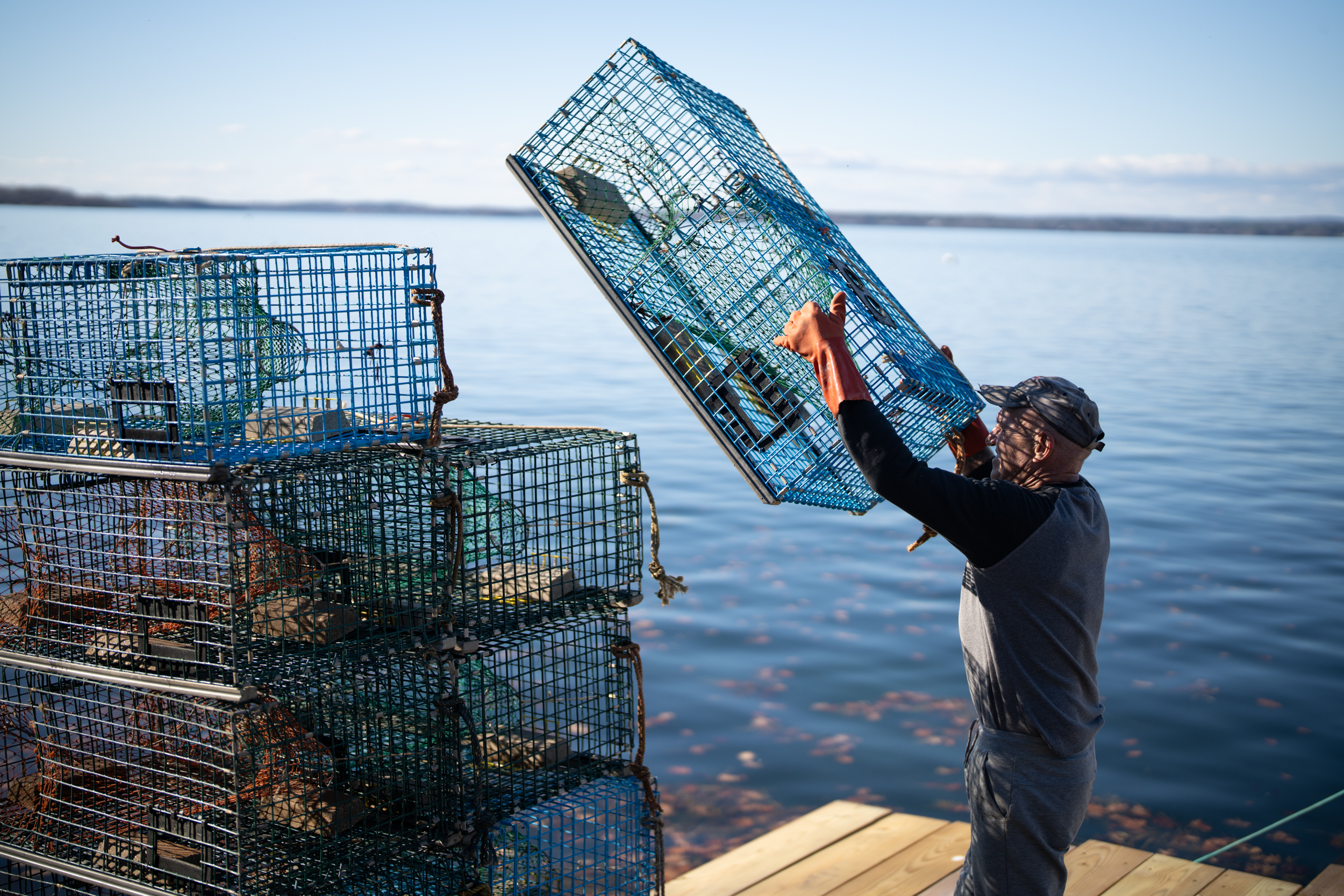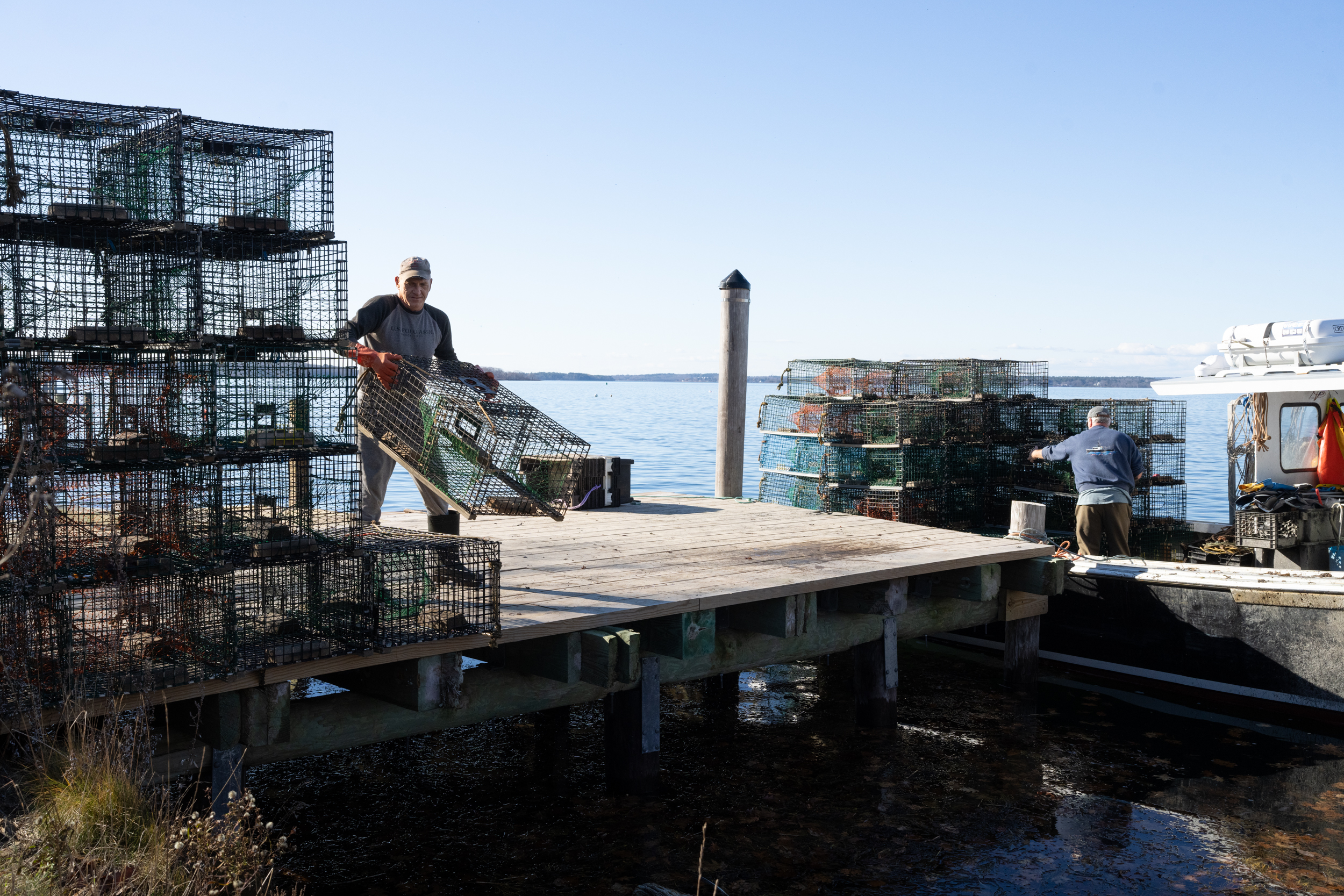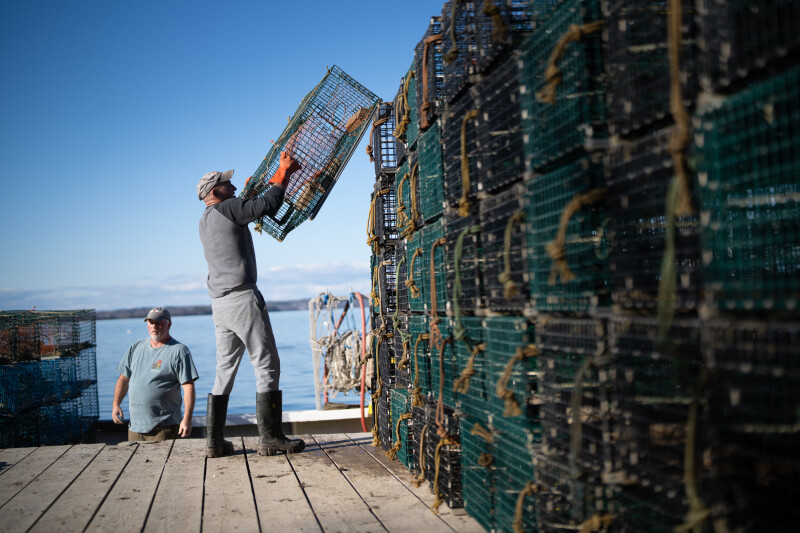Commercial fishermen are some of the hardest-working people on the water, or honestly, anywhere for that matter.
Fishermen are industrial athletes who work long hours in harsh conditions, lifting, hauling, sorting, and moving through unpredictable and physically demanding environments. It's no wonder the job takes a toll on the body, or why some people quit after a couple of days on the back of a boat. But unlike professional athletes, fishermen and other industrial athletes don’t have trainers on the sidelines or a team of physical therapists waiting at the wharf. They just keep grinding because the fish don’t wait, and the work is endless (and sometimes relentless).
One of the most common and least talked-about hazards in this profession isn’t a dramatic injury or an accident. It’s overuse. The kind of wear-and-tear that builds up season after season until it becomes something serious or even debilitating.
Overuse injuries develop gradually, caused by repetitive stress on muscles, tendons, and joints. On a boat, this can mean things like constantly coiling rope, lifting traps, shoveling bait, bending over the table to band lobsters (and squeezing the bander), bracing during rough seas, or climbing in and out of the boat multiple times a day. And fishermen are not known for giving their bodies time to recover.

Common overuse injuries that fishermen have include things like tendonitis, especially in the elbows, commonly referred to as tennis or golfer’s elbow. (There is actually a thing called “fishermen’s elbow,” which is more common amongst anglers, and it refers to pain in the elbow, often on the outside side, because of repetitive casting and reeling.)
Repetitive overhead or outstretched movements can lead to rotator cuff issues, while constant bending, lifting, and standing on unstable surfaces often contribute to lower back pain. Knee strain is also common from squatting, kneeling, or bracing during work. Repetitive gripping and banding motions can result in carpal tunnel syndrome or other types of wrist and hand pain. Unlike acute injuries, these problems tend to creep up slowly. It might start as a dull ache, then progress to swelling, stiffness, or persistent weakness. But instead of addressing it early, many fishermen push through. In fact, it's common among industrial athletes, like fishermen, loggers, and construction workers, to not consider something a real injury unless it forces them to miss work. Aches, pains, small cuts, and bruises are often seen as just part of the job, not injuries at all.
In commercial fishing and in other high-risk, physically demanding jobs, pain is often only taken seriously if it results in missed time on the water. But it’s important to recognize that pain and discomfort aren’t just annoyances; they’re warning signs. Sometimes ignoring them can lead to long-term damage, costly recovery, and eventually, time will be missed. And it could end up taking longer than if you had taken care of it when it first started to bug you. So, the problem becomes that by the time the pain is bad enough to stop working, the injury is already much worse than it needed to be.
Fishermen are tough human beings because they have to be. And not every single ache and pain needs to have you running to a PT. But learning to identify a normal ache from legitimate pain is incredibly important. Being proactive about your health doesn’t make you soft. Instead, it’s what keeps you in the game. Treating small issues before they become big problems is what allows you to work smarter, longer, and safer.
Here are some examples of some symptoms that signal that it’s time to see a physical therapist or medical professional: persistent pain that lasts longer than a few days, pain that worsens with specific movements or tasks, tingling or numbness in your hands, arms, or legs, weakness or limited range of motion (a reduction in the normal movement of a joint), swelling or visible joint changes, or pain that wakes you up at night or interferes with daily activities. These are all signs that something deeper may be going on and ignoring them can lead to more serious injuries down the line.
The good news is that with early intervention it’s less likely that you’ll have to take any time off the water. A physical therapist can offer targeted exercises and mobility work you can do at home, or even on the boat, to stay ahead of injury. Getting help early not only protects your body but can also keep you working longer and feeling better while you do it.
If you're in pain, find a nearby physical therapy office and ask a few key questions: Do you need a referral from your primary care doctor? What insurance do they accept? Can you self-pay? Be sure to tell them you're a commercial fisherman. Many offices are working to be more flexible, and knowing that your schedule is unpredictable could help with getting an appointment. Be up front with the doctor or PT, if time off the water isn't an option, let them know and ask about in-office treatments like dry needling, massage, or other options that can help keep you working.
Fishermen are industrial athletes which means your body is part of your livelihood, and just like maintaining your engine, your gear, or your boat, your body needs care too. Stretching, strengthening, mobility, and rest aren’t really negotiable, they’re necessities. And the earlier you start thinking about your health, the more seasons you’ll be able to fish strong.
Nobody wants to miss time on the water. But missing time because of a preventable injury is far worse than taking care of a minor issue early on. You’re not supposed to hurt all the time. Pain isn’t just part of the job, it’s information.








